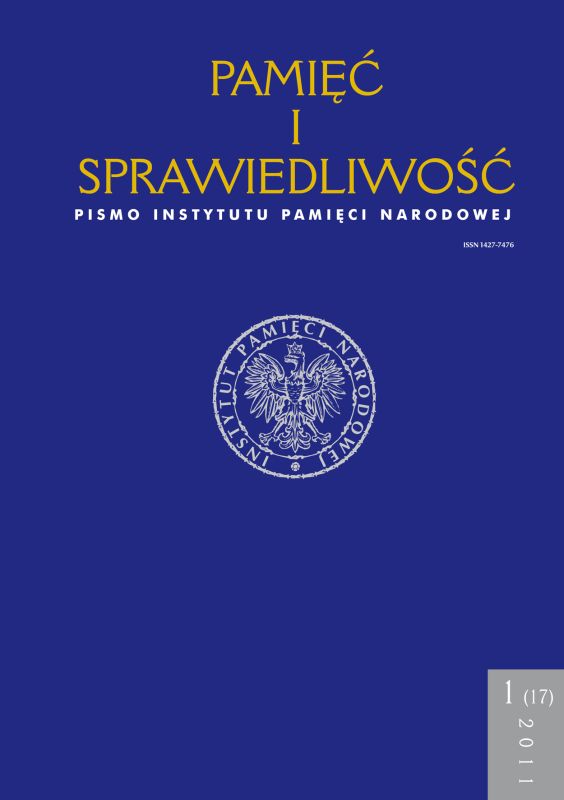Komunistyczny aparat bezpieczeństwa w Polsce wobec mniejszości białoruskiej w kraju i Białorusinów antykomunistów na Zachodzie (w latach czterdziestych, pięćdziesiątych i sześćdziesiątych)
Pamięć i Sprawiedliwość, Vol. 17 No 1 (2011), pages: 263-296
Publication date: 2011-06-30
Résumé
A group of people of Belarusian origin who used to collaborate with the Third Reich during World War II settled down in postwar Poland. From the very beginning, due to their anti-Communist past, they were under the watchful eye of the Bezpieka (Department of Public Security, Resort Bezpieczeństwa Publicznego and later Ministry of Public Security, Ministerstwo Bezpieczeństwa Publicznego). According to the definition derived from the security apparatus’ dictionary, that category of Polish citizens was the so-called „Belarusian burgeois nationalists”.
During the 1940s and 1950s „nationalists’” circles were under constant Bezpieka’s control. Those who belonged to the Belarusian anti-Communist political emigration in the West were taken a close interest in of the Security apparatus’ services. Polish citizens of Belarusian origin were being exploited in the process of uncovering activists of Belarusian opposition in the West. In order to haven them being kept under active surveillance inside and outside the country, Polish security apparatus worked in collaboration with the Soviet one.
Articles les plus lus par le même auteur ou la même autrice
- Jerzy Grzybowski, Powojenne losy żołnierzy Polskich Sił Zbrojnych na Zachodzie po powrocie na Białoruś , Pamięć i Sprawiedliwość: Vol. 11 No 1 (2007)
- Jerzy Grzybowski, Białorusini wśród uchodźców polskich na Środkowym Wschodzie i w Afryce Wschodniej w latach II wojny światowej , Pamięć i Sprawiedliwość: Vol. 8 No 2 (2005)
- Jerzy Grzybowski, Białoruska Komisja Wojskowa: powstanie i działalność (1919-1921) , Pamięć i Sprawiedliwość: Vol. 38 No 2 (2021)
 Język Polski
Język Polski
 English
English
 Deutsch
Deutsch
 Français (France)
Français (France)
 Italiano
Italiano
 Русский
Русский


 PDF (Język Polski)
PDF (Język Polski)
